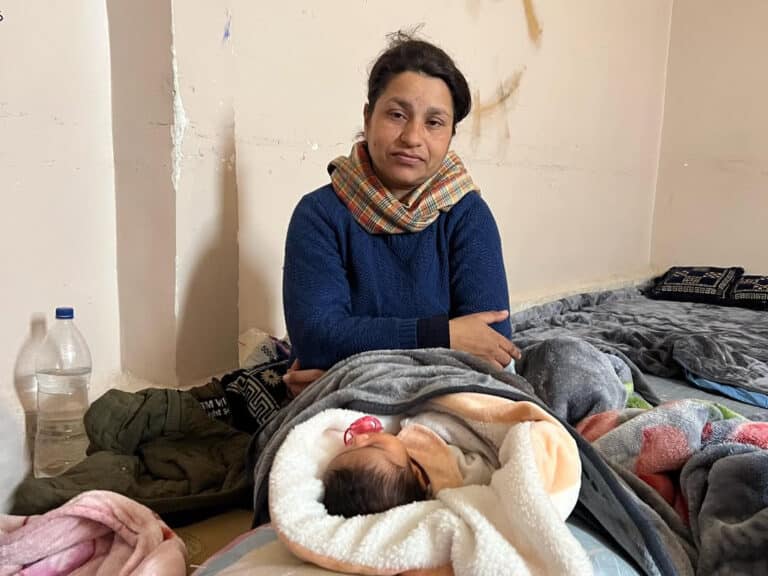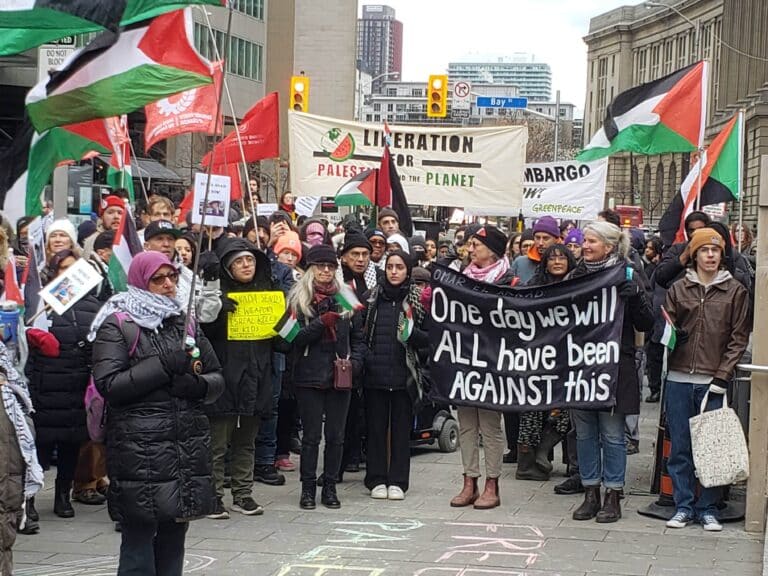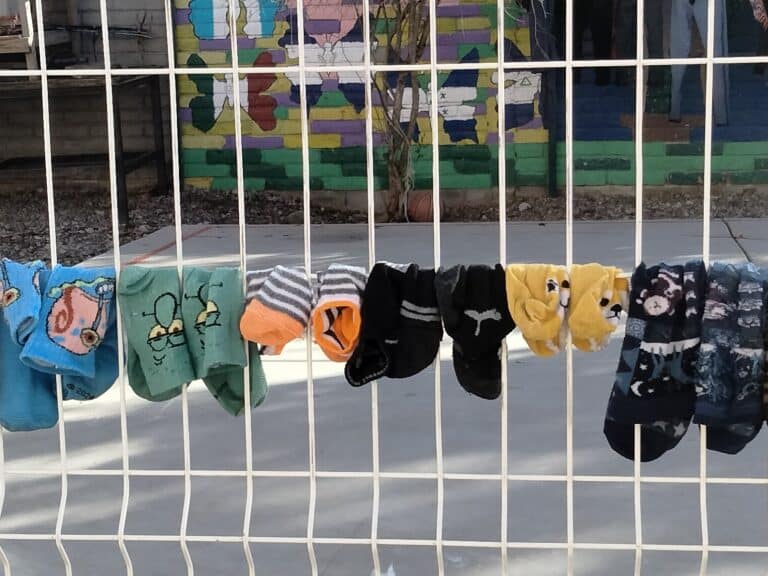As an average person who dreams of a better future and flying cars, never in a million years would I have imagined that this year, flying bombs would land on my people’s heads instead. I always looked forward to a future that erased the bitterness of our past and offered my people happiness, peace, and shining moments. I long for a future where Palestine would be full of its people again, free from all forms of violence, including massacres, killings, and arbitrary arrests, for simply being a Palestinian. I hope for a Palestine that would be free of home demolitions where a person — in front of their own eyes — would not lose everything they’ve built in a lifetime in just a matter of seconds. I always thought that the coming days would erase the years of land confiscations and our longing for the fragrance of Palestinian air and soil would be satiated, where we can move around the city without our joy being stolen by an apartheid wall that divides the city like a piece of cake choked by checkpoints and coloured ID cards. Like humans, I always hoped for an enhanced, brighter, and more promising future.
We used to look up to Western countries that live in peace without discrimination, racism, and terrorism, only to realise that it is fake and just propaganda they spread all over the world about international law and human rights. These laws only apply when it’s convenient to them, to their policy and to their interests to justify the occupation and to legalise the killing of innocent lives that steal the Palestinian spirit, heritage and bloom of youth. The Palestinian dream has always been, and still is, to create and reclaim the peace we used to live in. People think Palestinians are looking for what they lost in countries that host our people, but in fact, we care for only one thing: to return and gain back what we lost in our own beloved country, Palestine.
We’ve had this dream of the future not since yesterday but since 1948 and since the birth of Zionism’s brutality, barbarism and violence. Our grandparents and ancestors raised us with the hope that “Palestine is free” would be heard over the radio and seen on headline news, but sadly, their generation has not been lucky enough to witness it even though they believed they would. However, the current reality has not brought us closer to achieving this dream, so we might as well hope for the next generation to witness the dream of our grandparents.
The cursed year of 1948 still hangs heavy in the air, casting a shadow over today. Tragically, this year feels like 1948 again; people are facing genocide and displacement again. We are not sure how many years are left for us to keep track of and endure this violence. The crimes against Palestinians continue with no end in sight. We can’t recall a single day without something terrible happening – so it seems pointless to hope for an end because of the hideous crimes we witness every day. All days are the same; all days carry grief, pain, and loss.
Israel uses the tactic of establishing its “state” based on the demolition of the future of Palestinians, destroying all hope of creating a future for Palestinians in a free country. Israeli settler colonialism makes it unimaginable to dream of liberation, as Palestinian intellectual and martyr Basil Al-Araj reminds those who struggle, “Do not dream of a happy world as long as Israel exists.” A free Palestine is not possible without the end of the occupation. Since the beginning of the occupation, the only thing that comforts Palestinians is the hope that one day they will not have to endure the crimes against themselves, their children and their grandchildren. Our grandparents have shaped the means of resistance and have inherited this spirit of sumud — of continual resistance, fighting and not submitting to the occupation — to the next generation. As Al-Araj reminds us, “Resistance is a continuous feasibility.”
This tradition of resistance raises the question: If the generation that came before us waited and hoped for a brighter future for themselves, and we are their grandchildren, until when must we wait? Which generation will witness a free Palestine?
Al-Araj found his answers, and glory to those who found their answers.
But what about us? What about the rest of the Palestinian people? When will we find our answers?
We pray that this cycle of destroyed hope and crushed dreams end one day. We pray for freedom and liberation. We pray for a Palestine without oppression and aggression. We pray we can undo this oppression. We pray for strength and patience as we resist the occupation. We pray to build a future for our children or at least pave the way for them. We know this oppression will end one day and that our efforts are not in vain. We only pray to witness that day.




